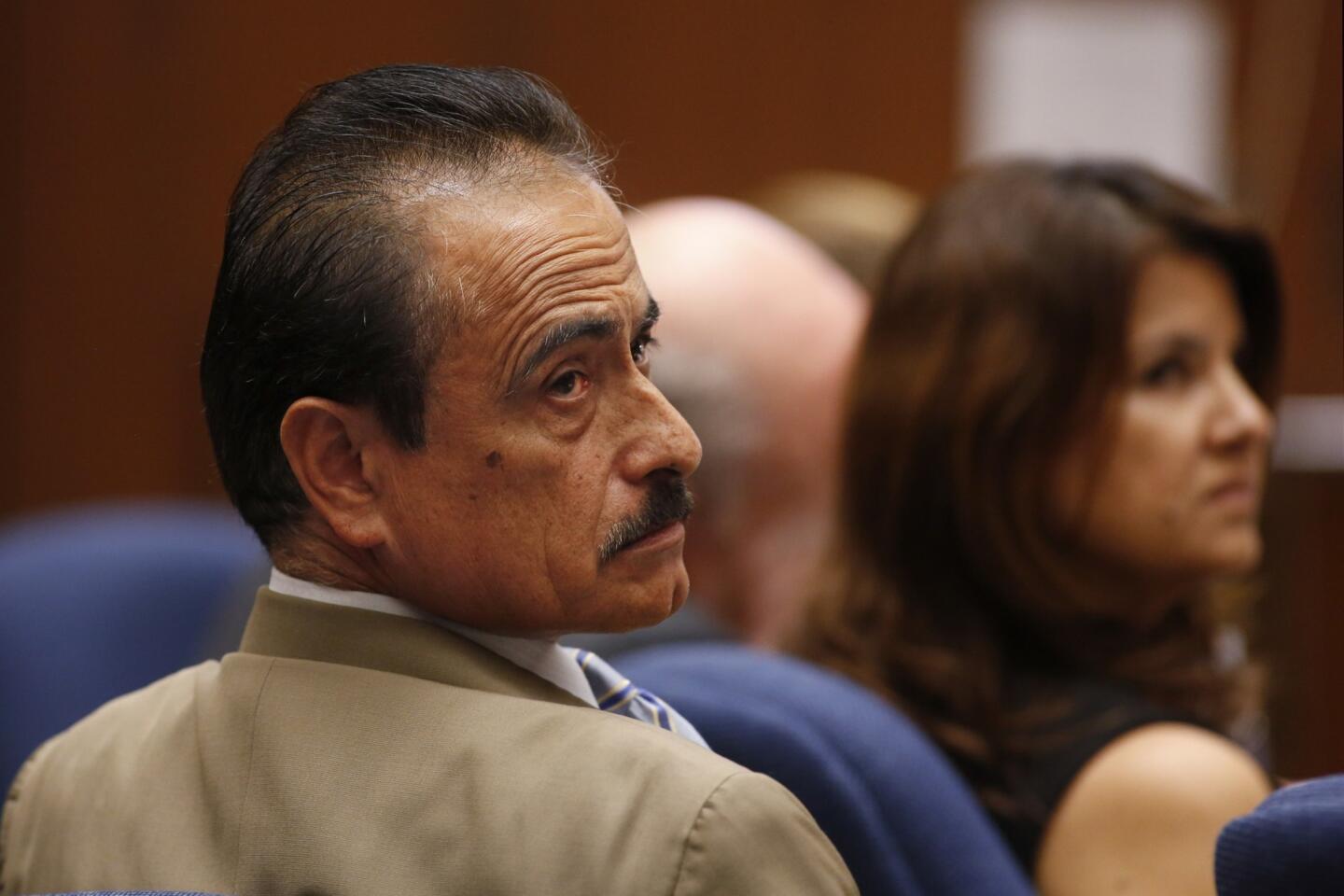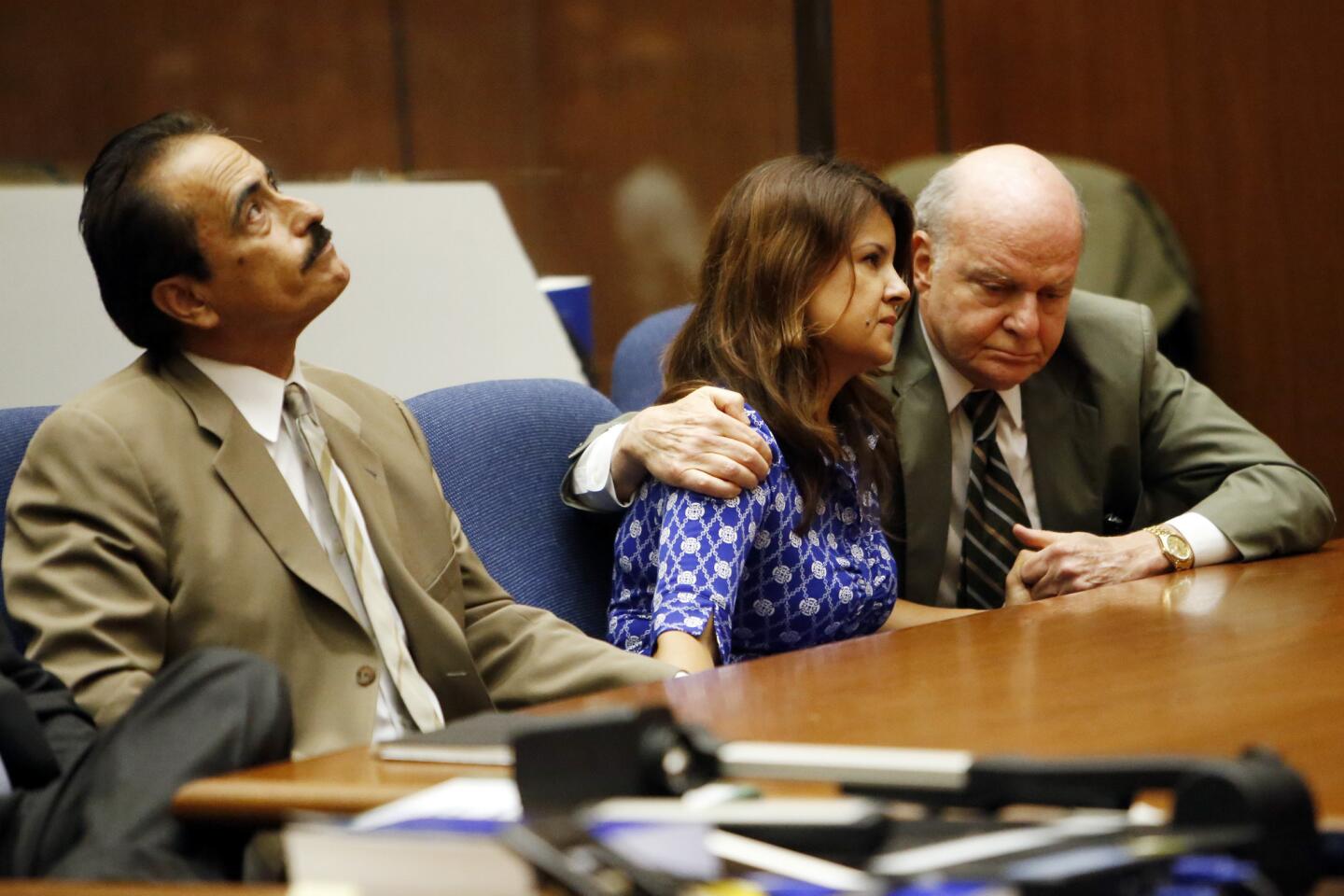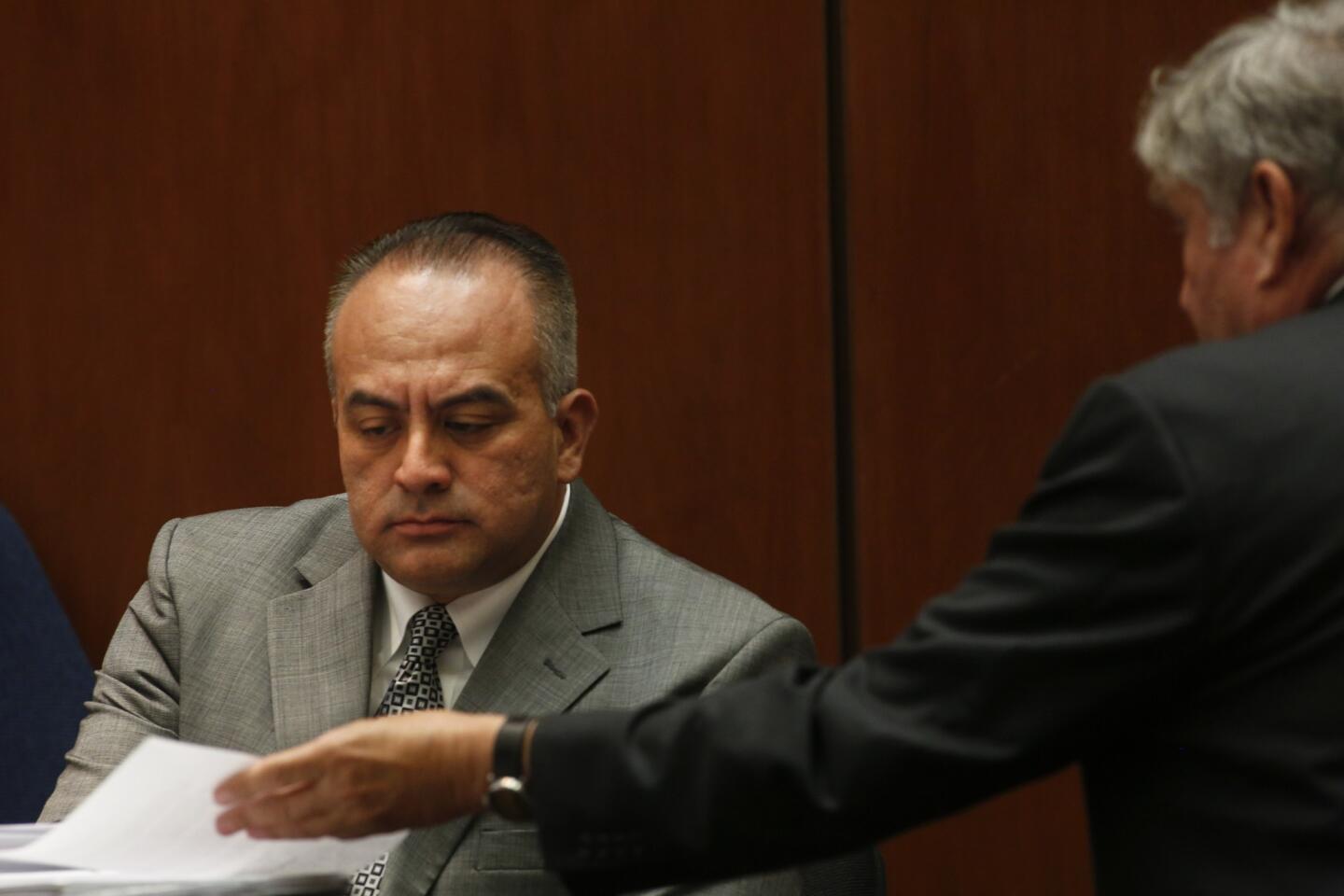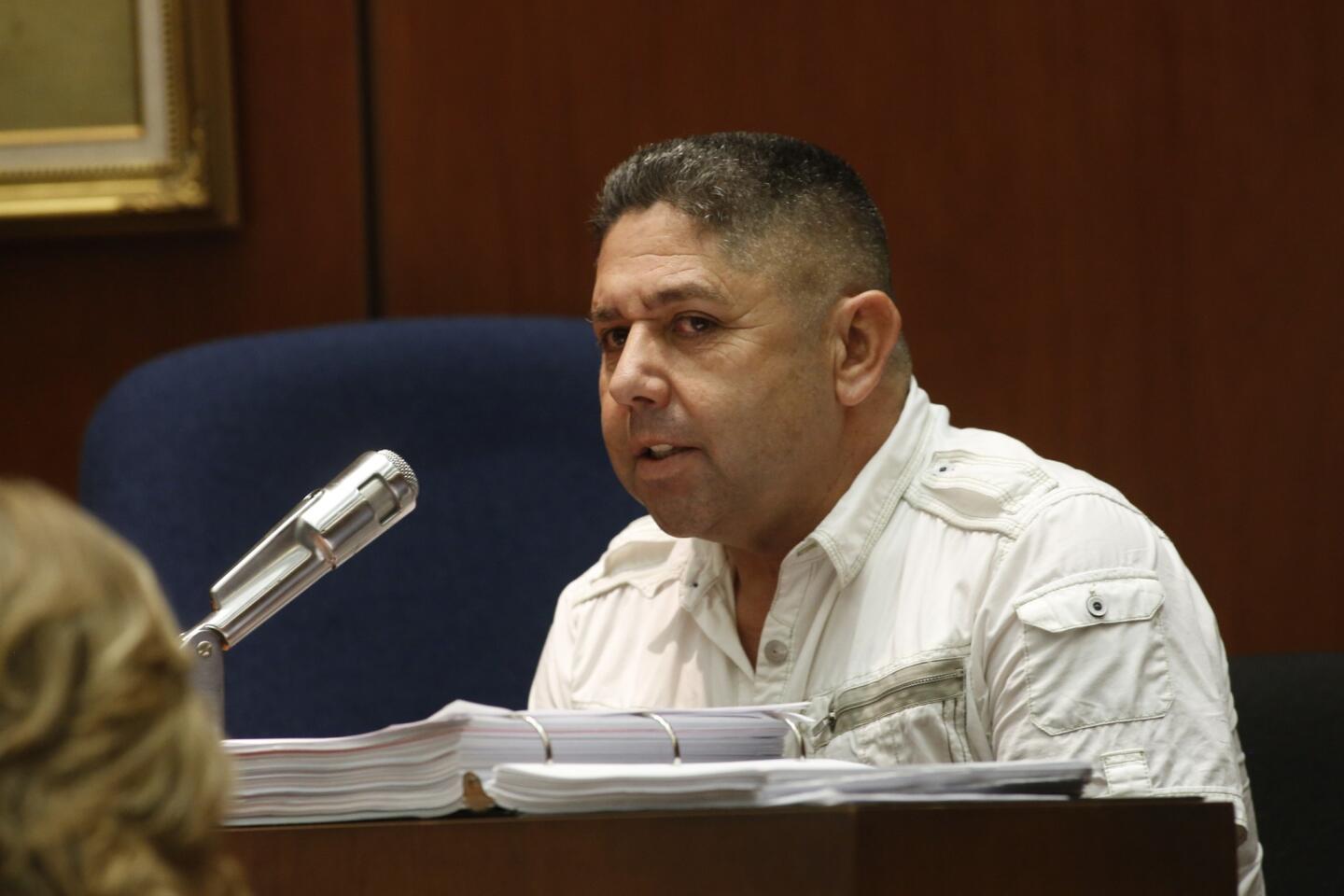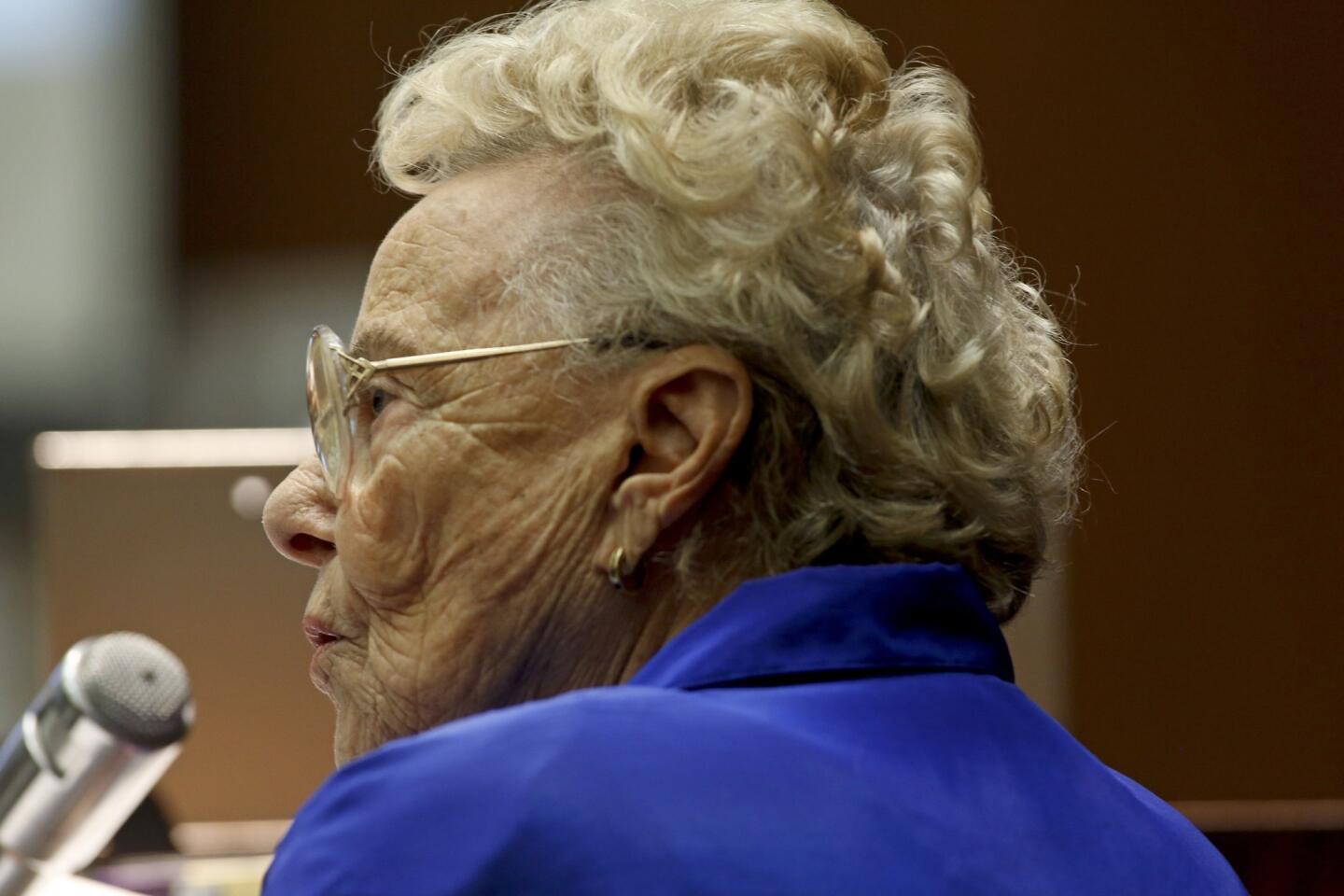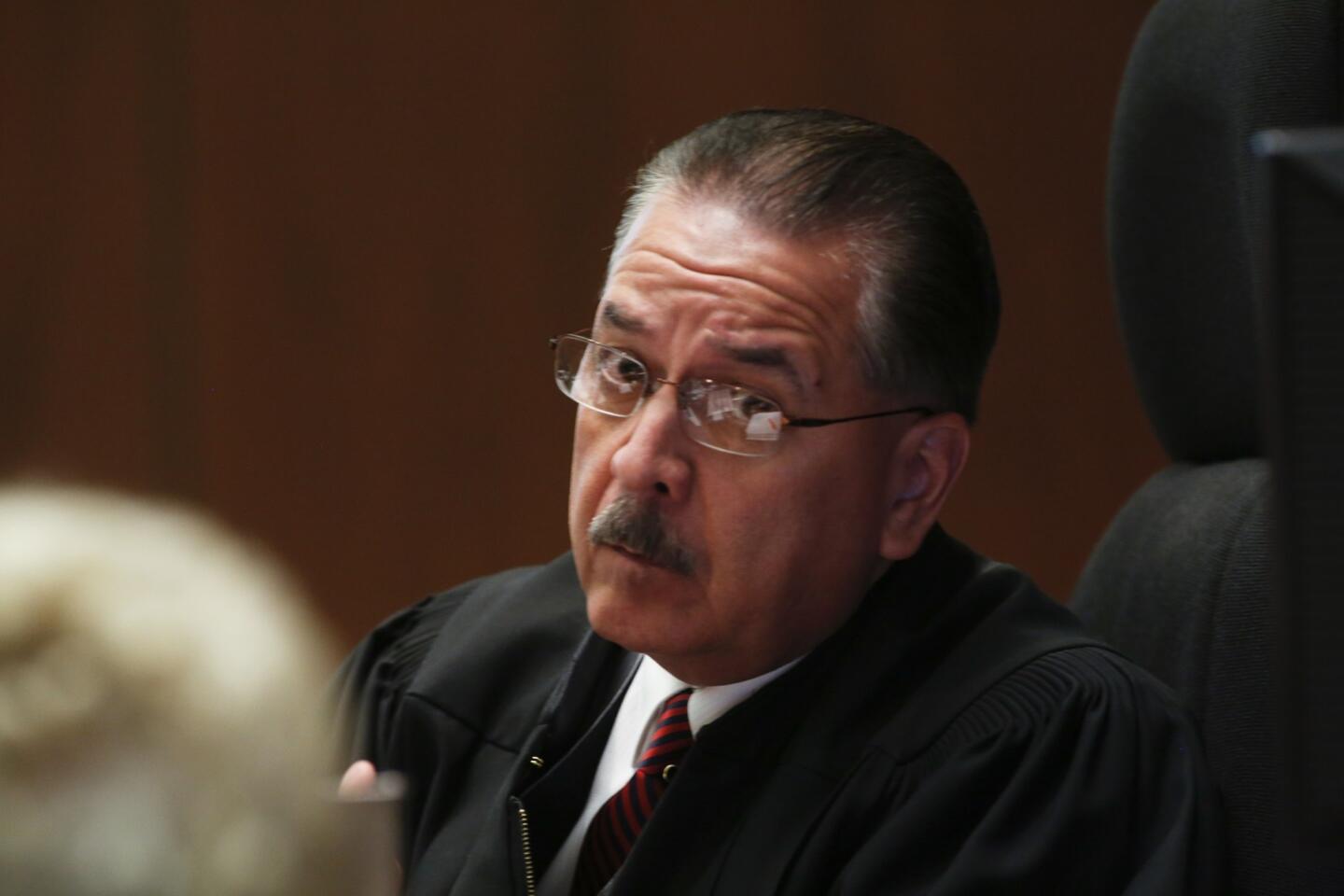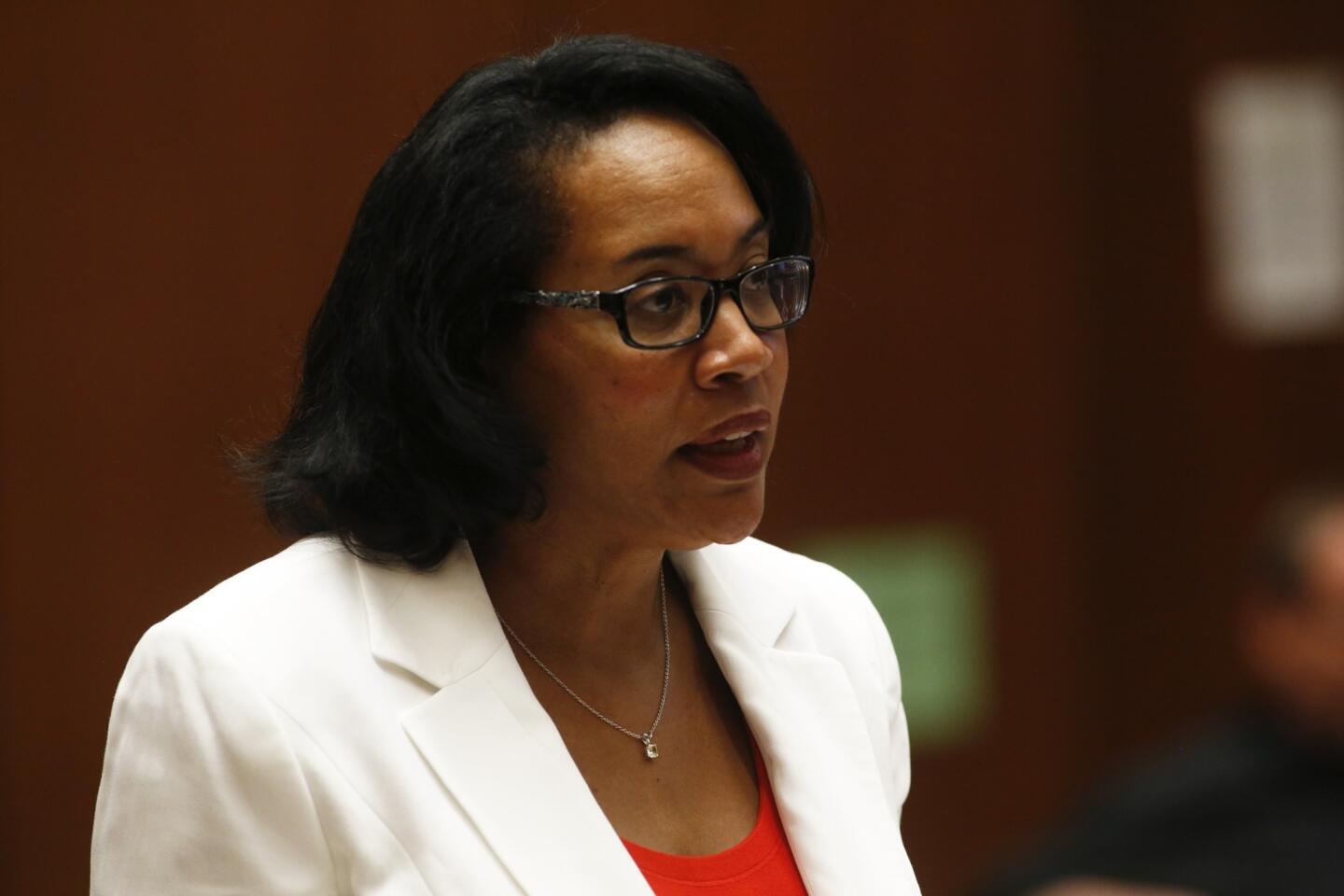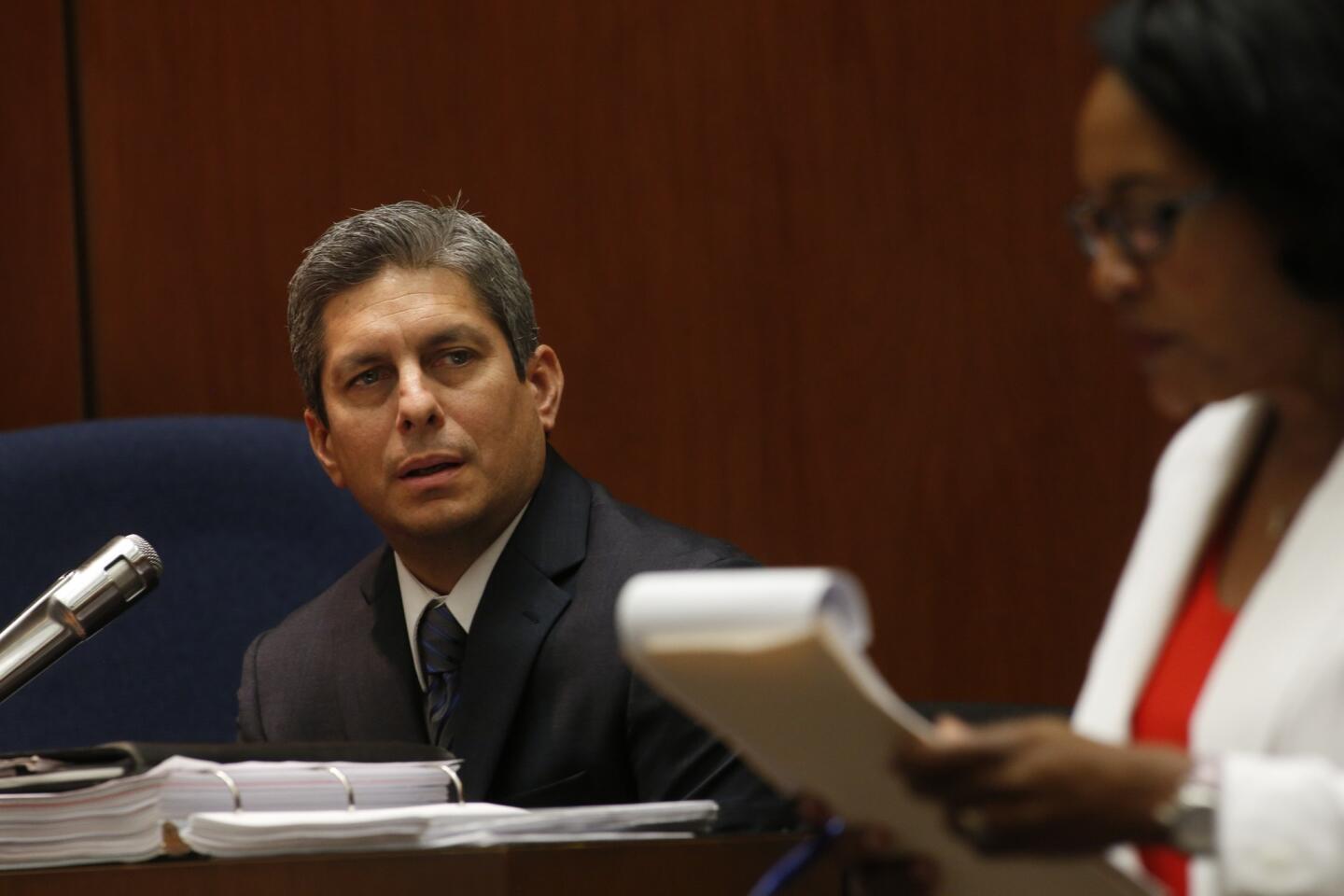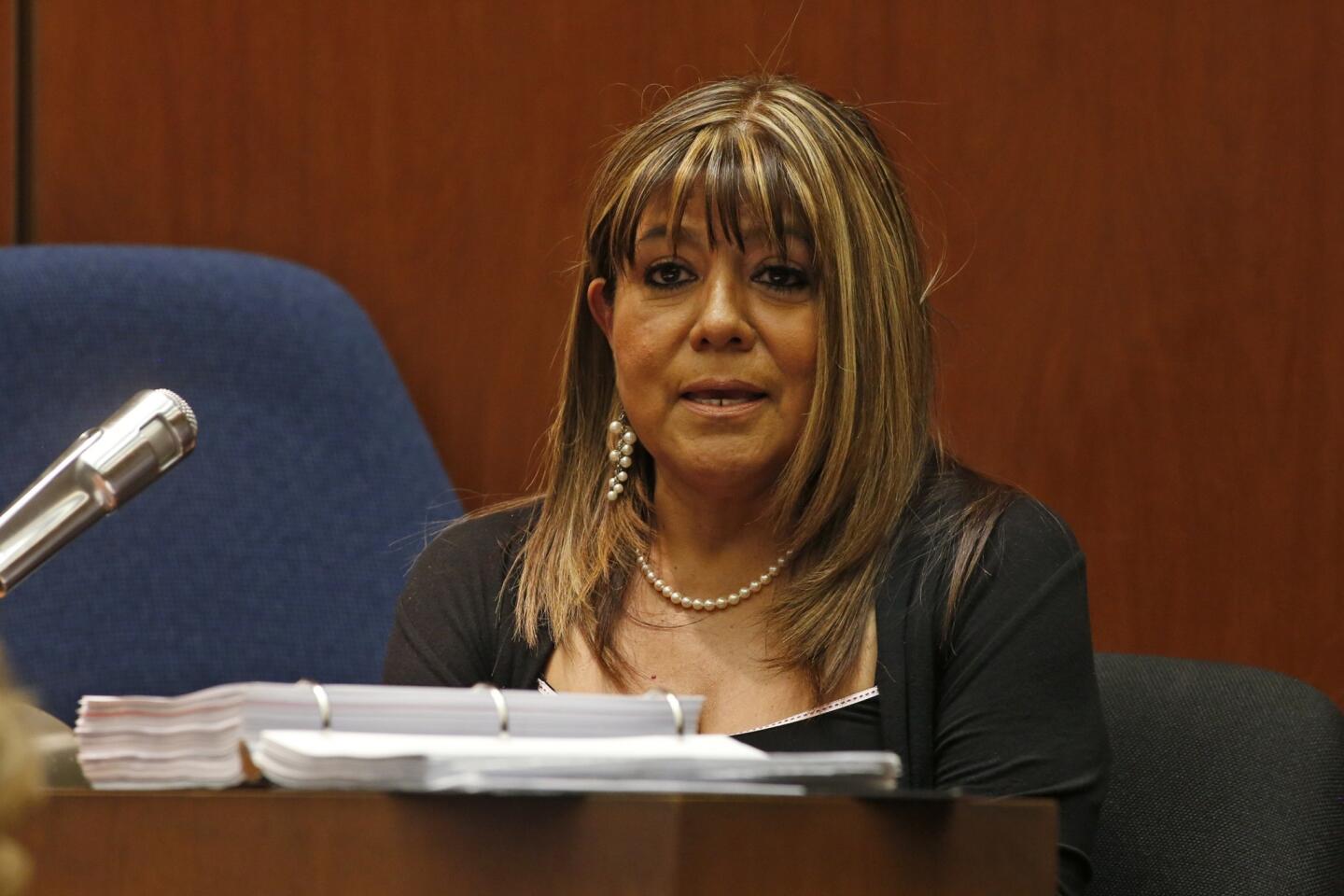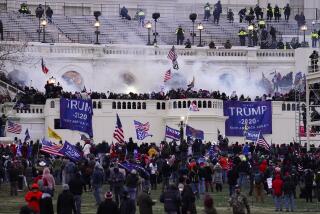Alarcon jurors were split, argued for days over criminal charges
- Share via
The jurors in the voter fraud and perjury trial of former Los Angeles City Councilman Richard Alarcon argued for days, with opposing sides initially arguing for convictions and acquittals on all counts, according to interviews.
After five days of deliberations, the five-man, seven-woman jury found Alarcon and his wife guilty of several counts of perjury and voter fraud Wednesday for lying about where they lived so Alarcon could run for city office.
Juror James Mandujano said the verdict for Alarcon came down to “common sense.”
“He hasn’t gotten this far because he’s naive, or misinterpreted a word in a form,” said Mandujano, 32, referring to arguments in the case over the meaning of legal residency requirements for politicians.
Mark Overland, an attorney representing Alarcon’s wife, said “the verdicts just make no sense.” He said the Alarcons would appeal the decision.
Prosecutors alleged the couple lied about living in Panorama City in the council’s 7th District, so Alarcon could run to represent the area, which he did from 2007 until last year.
The district attorney’s office maintained the couple actually lived in a bigger, nicer Sun Valley home outside the district. The City Charter requires that candidates live in the district they seek to represent.
The Alarcons’ attorneys argued that the couple’s Panorama City house was their permanent residence, even if they didn’t spend all their time there. They said the couple was renovating that home and intended to return there, meeting the election residency requirements of state law.
In all, the Alarcons faced 21 counts of perjury and voter fraud for allegedly lying about their residence in campaign, voter registration and Department of Motor Vehicles documents.
The jury found Alarcon guilty of three counts of voter fraud and one count of perjury, and not guilty on 12 similar charges.
His wife, Flora Montes de Oca Alarcon, was convicted on two counts of voter fraud and one count of perjury. She was found not guilty on two counts of perjury.
Two jurors interviewed after the verdict said utility usage at the Panorama City home was the most convincing piece of evidence. They pointed to the lack of gas consumption in the house from April 2007 to February 2009, saying the Alarcons couldn’t have cooked, heated their home or taken hot showers.
The charges covered a period from 2006 to 2009. But the convictions involved only the period from November 2008 to May 2009. One juror, who asked not to be named because of possible repercussions at his work, said the utility bills convinced the panel beyond a reasonable doubt that the Alarcons weren’t residing in the home during the latter period.
Mandujano, a Whittier truck driver, said the deliberations were stressful. The jury spent much of its time reviewing the language of each count and considering how prosecutors and the defense interpreted legal residency requirements.
“The evidence was great, but it came down to the word game,” he said.
California law defines a residence for voting purposes as a “domicile,” a place where habitation is fixed and where one intends to return after an absence. Mandujano said jurors concluded some of the government forms the Alarcons were accused of lying on did not specifically ask about their domicile.
Jessica Levinson, who teaches election law at Loyola Law School, said that the jury’s decision to convict only selectively on some counts, based on the evidence, indicates they “were very careful” and “spent a lot of time thinking about what the words meant.”
Mandujano said that jurors believed it was unlikely Montes de Oca Alarcon, who owned both homes in question, would ever want to leave the nicer Sun Valley home. He pointed to prosecution photos and videos showing the starkly different conditions of the two homes.
“There’s no way you’re going to move from a custom-made house to a two bedroom” near an alley, he said.
More to Read
Sign up for Essential California
The most important California stories and recommendations in your inbox every morning.
You may occasionally receive promotional content from the Los Angeles Times.
